Can we take a quick moment and acknowledge the obvious? This COVID-19 virus has completely turned the world and our schedules upside down! Families have gone from the busy, but normal, routines of school, work, and extracurricular activities, to working and learning at home and limiting all but essential trips out in public. Many families never envisioned a reality like this one. They didn't plan on working remotely, and they certainly didn't plan on educating their children at the same time, and yet, this is the current situation. So what now? What can you do to best help your children now that they are learning at home?
But I Don't Know How to Homeschool!
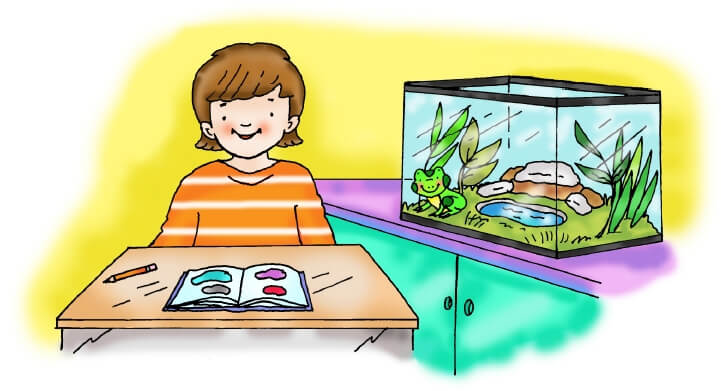
Free Resources for Homeschooling

Set Some Sort of Schedule
This may seem obvious, but children are used to some sort of routine throughout the week. They wake up at certain times, eat at certain times, and go to school at certain times. This expected routine brings comfort and a sense of normalcy. Now that your kids are home all day, they will still benefit from the consistency that some sort of schedule will bring. These printable schedules templates can be a great place to start mapping out your day. If you have older children, ask them for their input. What is important to them? What is important to you? Working together to create a routine that will work for your family will help everyone have buy-in and feel heard as you work your way through the next few weeks together. Remember, however, to be flexible and realistic as you create your new "normal" routine. Each day will certainly have curve balls, yet on some days, the routine will be easier to follow than on others. This is why we suggest "some sort of schedule." Don't let your outline dictate your day; rather, use it as a guide to making sure you are accomplishing the important things that need to get done and providing the sense of normalcy your children are longing for.
Set up a Learning Spot
Where will your students do their schoolwork each day? Part of setting them up for success at home involves creating a space in your home in order for them to be successful. While your kids don't need a special school desk and chair in your home office, they will most likely focus a whole lot more if they aren't trying to do math while lying in bed in their PJs at 3:00 in the afternoon. Whether it's the one spot at the dining room table, kitchen counter, or a corner of the living room with a lap desk, help your children choose the spot that will help them soar academically each day.
Make the Most of Your Materials
Once you've established your learning spot, start gathering your tools. There is powerful research to support the connections students make when writing down the things they are learning, so be sure to have pencils and paper on hand to assist them with their assignments. You can use an old shoebox or supply box and fill it with crayons, erasers, colored pencils, markers, highlighters, and anything else your students may need to help them complete their work. While Pinterest will offer you hours of suggestions as to how you can create the best and most creative set of supplies, remember the name of the game right now is finding and using what will work for you and your child. Keep it as simple or as creative as you want it to be.
Reading
Part of your daily schedule should have some time set aside for reading. With local libraries closed and your home bookshelves filled with stories you've loved (but read a million times), you may find online resources coming to your rescue. Epic Books is currently offering a free thirty-day trial for any new members and free membership until the end of June with promo codes sent out by teachers and school districts. Your kids will love the digital versions of these incredible books! Many authors are also hosting live read alouds of some of their most popular stories. This is another great way to foster a love for reading.
Writing
What types of writing activities should your children be doing? Journaling is a great way to not only practice writing skills, but also express thoughts and feelings about all that is going on in the world. Encourage your child to journal each day about their current experiences. You can also use this time to write letters to family members, friends, or local nursing home residents who are most likely feeling extra lonely due to the social isolation and lack of visitors. There are also writing prompts that you can use to catapult your child's creativity, help them develop more critical thinking skills, and keep them engaged from home.
And Arithmetic
This is the subject area that tends to make most parents panic. Math, especially the way children are learning it today, seems to be a bit overwhelming as it looks nothing like the way math was taught years ago. This is where it's important to remember that your role right now is most likely to help your child review the skills they've already learned. Your job is to help them learn at home rather than homeschool them. Allow online resources like Khan Academy to do the math and teach for you through educational videos, and printable math worksheets to provide the chance to practice. Other sites have creative and fun math games that keep students thinking critically and making good use of that screen time you're probably trying to limit.
Science and Social Studies
Learning at home is a wonderful time for your children to study things that they are passionate about. It's a chance for them to be self-directed in their learning rather than being forced to follow a plan of action laid out by the district. Take advantage of that as you think about science and social studies themes they can explore. Has your family watched any of the "Who Was..." series on Netflix or read any of the short biographies? Encourage your child to select a historical figure, research more about his or her life, and share these findings with the family. Have them take a look at Scholastic news for weekly articles and current events.
When thinking about science, be sure to take a look at Mystery Science for quick, grade-level-appropriate science lessons you can try at home. National Geographic for Kids is another great site filled with articles, games, and information about animals, space, and science that your kids will enjoy.
Arts and Activities
Make sure that you build in time for some sort of physical and creative activities each day. Both of these aspects of school help release stress, which will, in turn, boost immunity. And let's be honest, movement and creativity make your kids happy! There are countless dance parties, yoga classes, and even daily PE classes for kids to be found online. Likewise, YouTube is a great place to find craft and drawing videos, like Lunch Doodles with author Mo Willems.
Social Distancing Socializing
One of the hardest parts about the schools being closed for an indeterminate amount of time is the fact that your kids will certainly miss spending time with their friends. On traditional school breaks, many afternoons are spent at the playground or on playdates. Without that option right now, it's important to creatively meet your child's need to be connected to his or her friends. Why not set up Zoom playdates? Zoom is a video conferencing software. You can host a free meeting for up to 45 minutes and have several friends in different homes all login and connect at the same time. This software can work for families across the country or across the street and is a great way to keep us all connected even while we are forced to stay apart. You can organize study sessions, board games, and even lunch recess where your child and his besties can all sit and enjoy the break between classes just like they would on campus.
Give yourself (and your kids) grace
Perhaps the most important thing to remember as you are thrust into this new school situation with your children, is that now is not the time to expect perfection from yourself or from them. Instead, try your best to go with the flow of this new but hopefully temporary, normal. You and your kids are anxious. That is also normal! Some days there will a lot of learning. Fantastic! Other days may have a lot of coloring. That is okay, too. In the end, what your kids will remember about this season is how they felt. They won't remember countless hours you may or may not spend planning perfectly executed art lessons, but they will remember the comfort of having you near to ease their anxiety. They'll remember the way you giggled with them between conference calls while you made lunch together. Treat each day as a gift, tackle it with confidence, and encourage your children to make the most of their homeschooling time.
Trending

Weekly Lesson Plan Power-Ups
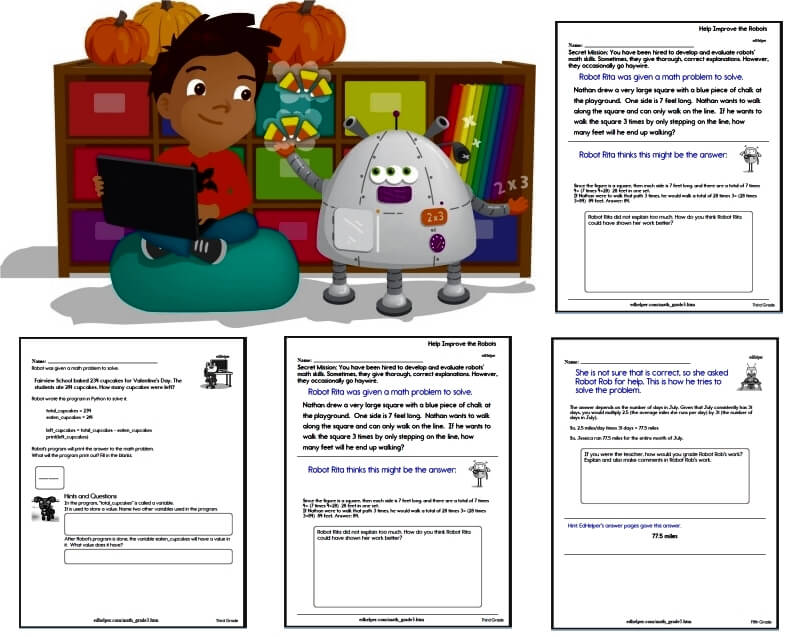
Daily Math Practice
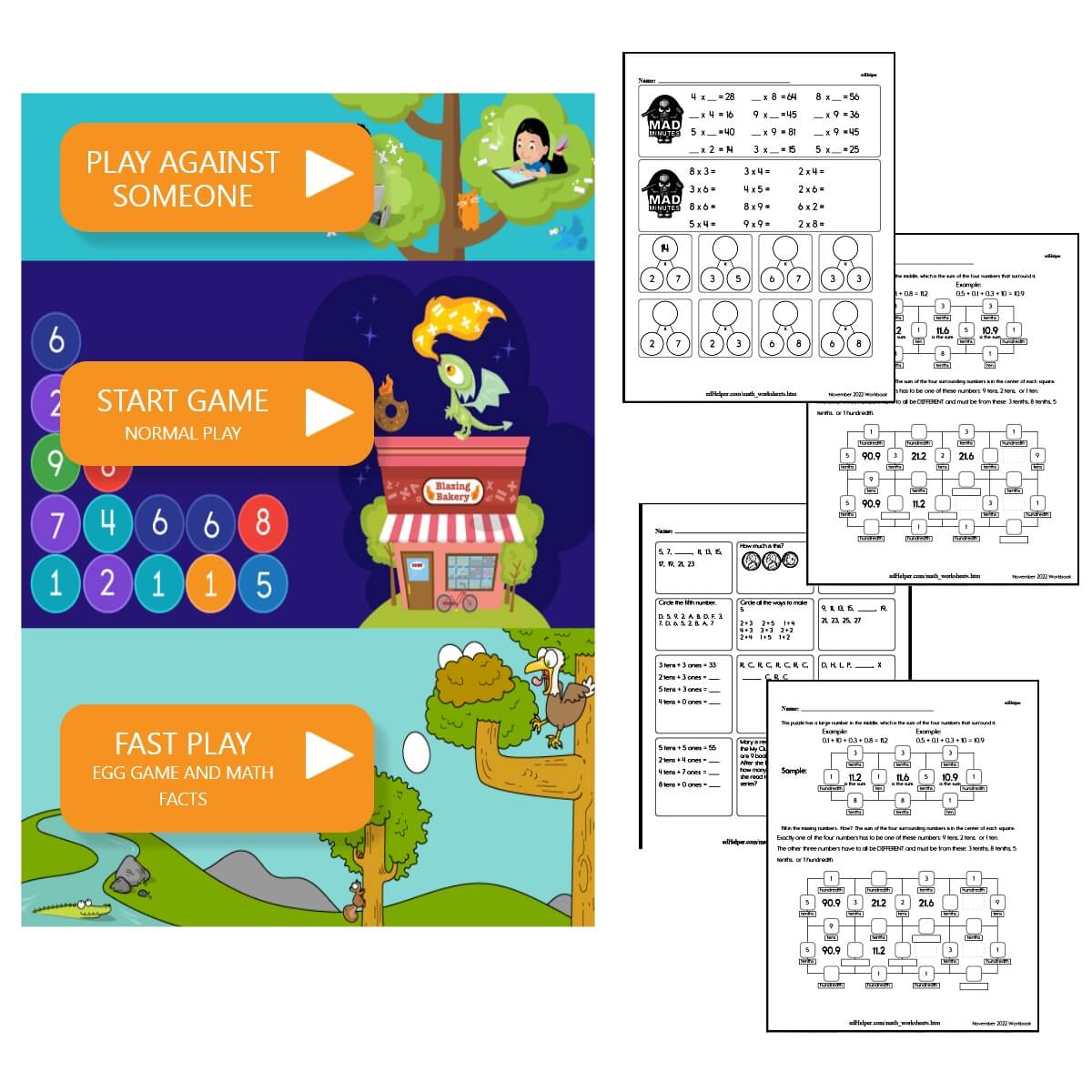
Math Homework for Generation Alpha

Freebies for Busy Teachers
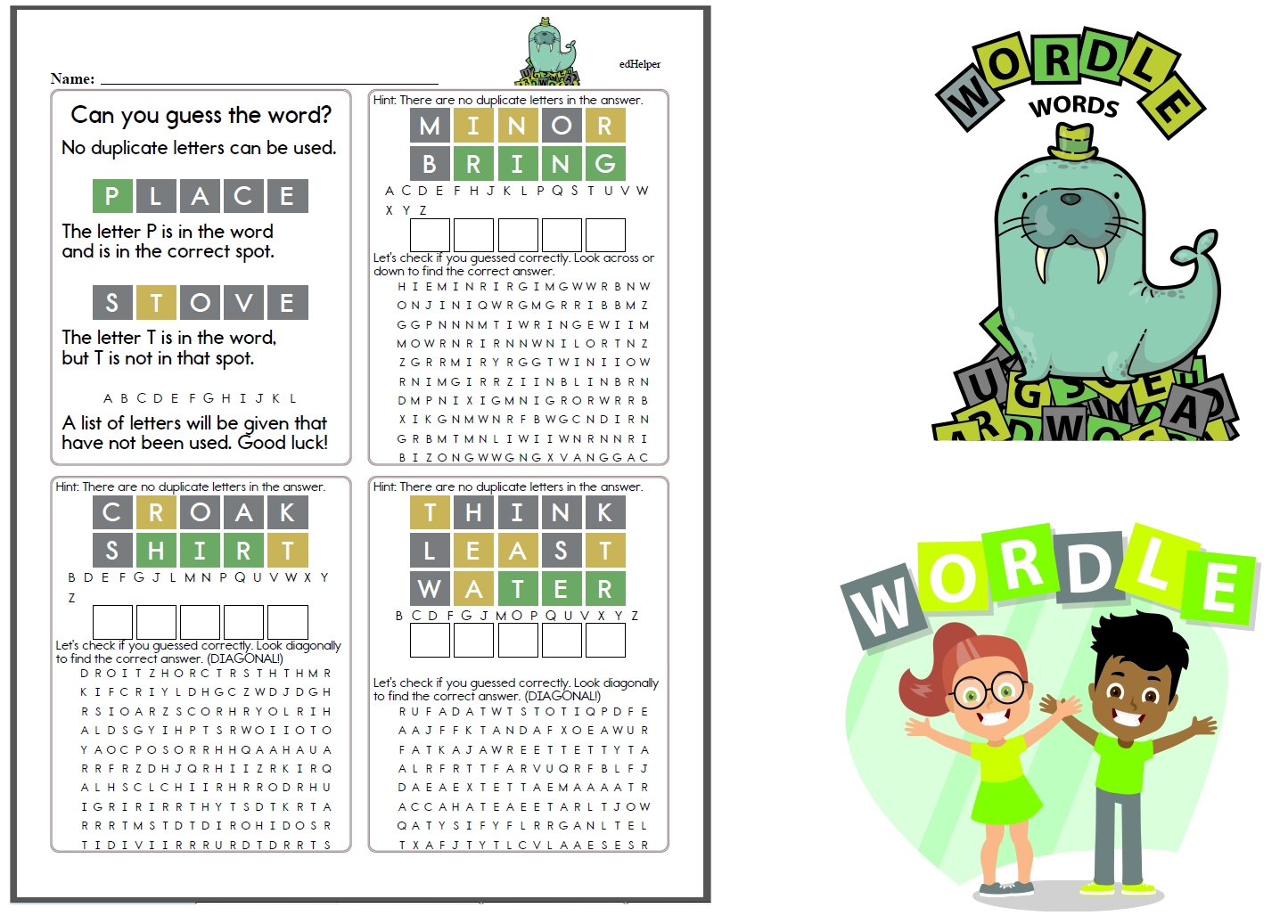
Wordle Worksheets

Mental Math Task Cards

Elementary School Children Don't Get Enough Math Practice at Home

10 Math Worksheets That Work for Teachers (Free Printables)
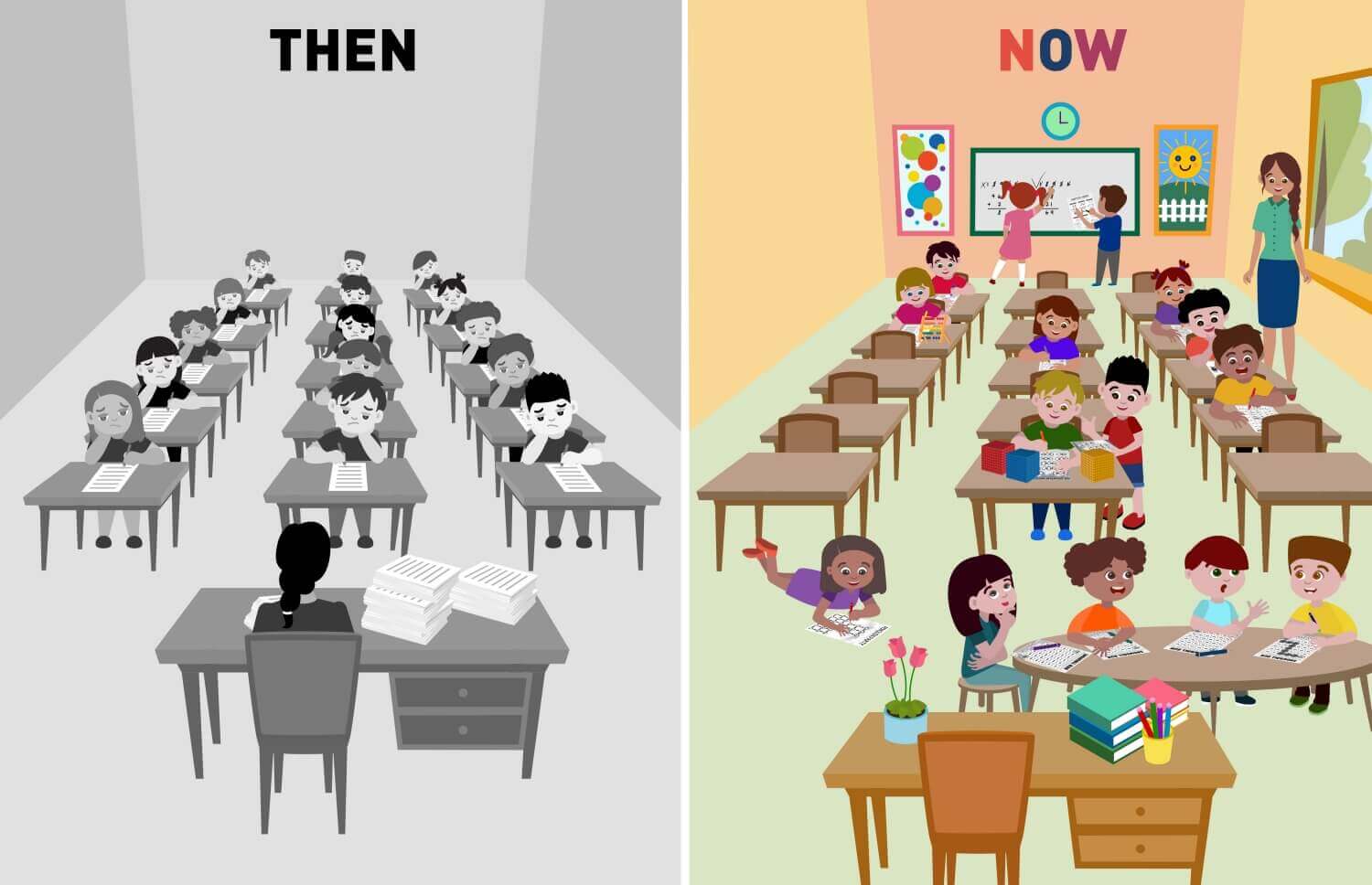
Do Math Worksheets Really Work? What We Found May Surprise You.

Best Teaching Ideas
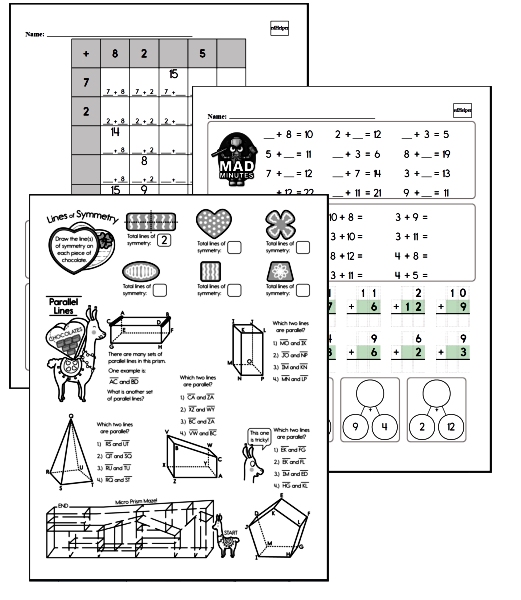
Math Worksheets
Free Math Worksheets - No Login
Kindergarten Jumbo Math Worksheets PackFirst Grade Jumbo Math Worksheets Pack
Second Grade Jumbo Math Worksheets Pack
Third Grade Jumbo Math Worksheets Pack
Fourth Grade Jumbo Math Worksheets Pack
Fifth Grade Jumbo Math Worksheets Pack
Sixth Grade Jumbo Math Worksheets Pack
Middle School Jumbo Math Worksheets Pack
